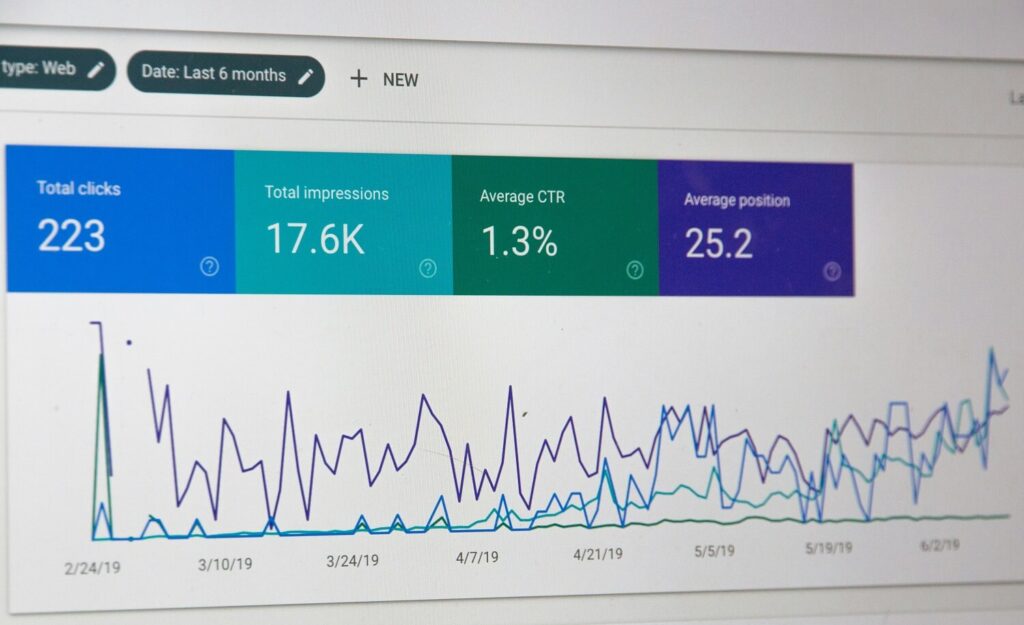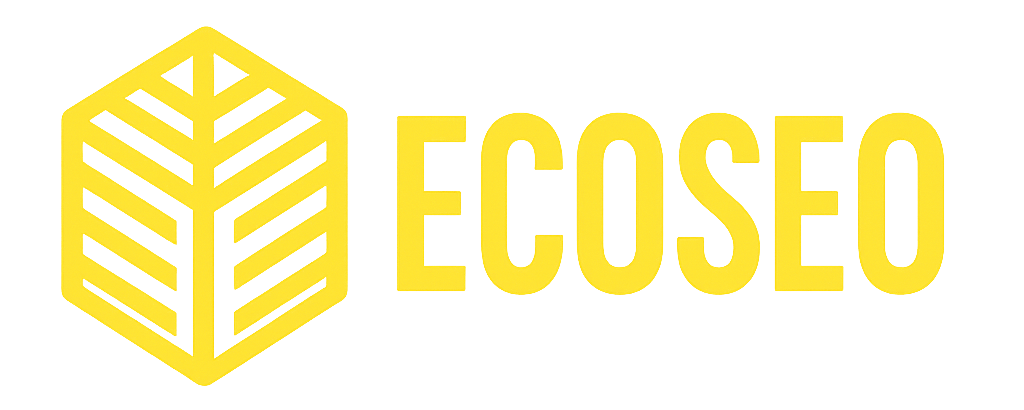When it comes to growing your online presence, SEO (Search Engine Optimization) is one of the most powerful tools available. But with so many agencies claiming they can get your website to the top of search engines, how do you choose the right one?
The process can be overwhelming, especially if you’re unsure how to choose an SEO Agency and how it can benefit your business. Making the right choice is crucial for the long-term success of your business.
This guide will break down everything you need to know about SEO agencies, what they do, and the questions you should ask when choosing the best partner for your business.
Table of Content
What is an SEO Agency/Company?
What Does an SEO Company Do?
Keyword Research
On-Page Optimization
Content Creation and Optimization
Link Building
Technical SEO
Local SEO
Analytics and Reporting
Conversion Rate Optimization
Competitor Analysis
User Experience (UX) Optimization
How to Choose an SEO Company? (10 Questions You Should Ask)
10 Red Flags to Watch Out for When Choosing an SEO Agency
Frequently Asked Questions (FAQs)
Key Takeaways
Conclusion

What is an SEO Agency/Company?
An SEO agency is a company that specializes in optimizing websites to rank higher in search engine results. They work with various strategies to ensure that your website attracts more organic traffic, which ultimately leads to more visibility and business growth. SEO companies focus on both on-page and off-page optimization to improve your site’s ranking for targeted keywords and topics.
SEO is a comprehensive strategy that includes technical aspects, content creation, link building, and more. By using a data-driven approach, SEO agencies ensure that your business gets the attention it deserves online.
What Does an SEO Company Do?
An SEO company performs a variety of tasks aimed at improving your website’s ranking, traffic, and conversion rates.
Here’s a deeper dive into the key tasks they handle:
Keyword Research
SEO starts with finding the right keywords. By understanding what your target audience is searching for, an SEO company can select the most effective keywords to target.
For example, if you’re a personal trainer, your search marketing agency may find keywords like “best workout for weight loss” or “personal trainer near me.” They then incorporate these keywords into your website content to attract visitors who are actively searching for your services.
On-Page Optimization
This includes making sure that all elements on your website are optimized for both search engines and users. This could involve adjusting title tags, meta descriptions, header tags, and ensuring that URLs are clean and easy to understand.
For example, a restaurant’s website might optimize the title tag to say “Best South African Restaurant in [City]” to rank for local searches.

Content Creation and Optimization
SEO agencies ensure that your website has high-quality, relevant content. They’ll optimize your blog posts, product pages, and even FAQ sections with the right keywords.
A good example would be a tech blog that consistently publishes content optimized for specific gadgets, offering detailed product reviews and comparisons.
Link Building
Link building is an essential part of SEO. When credible websites link back to your site, it signals to search engines that your website is a reliable source.
The SEO agency might reach out to industry blogs, influencers, or even news outlets for backlinks. For instance, if you run an online clothing store, an Search Engine Optimisation agency might get your site mentioned in popular online fashion magazine.
Technical SEO
Ensuring your website is technically sound is crucial for SEO. This includes improving page load speed, making the site mobile-friendly, and ensuring proper site indexing.
For example, a tech startup might optimize their site to ensure it loads quickly on both desktop and mobile devices, improving user experience and search rankings.
Local SEO
For businesses that operate in specific geographic locations, local SEO is key. An SEO agency will optimize your Google My Business listing, build local citations, and ensure your site ranks for location-based searches. For instance, a local plumbing service will want to rank for keywords like “plumber in [City]” to attract customers in the area.

Analytics and Reporting
To track the success of SEO campaigns, an agency will monitor website traffic, keyword rankings, and conversion rates. They will provide regular reports to show how well your website is performing and what improvements are being made. For example, an SEO company might show you that your website’s traffic increased by 30% after a few months of work.
Conversion Rate Optimization
It’s not just about attracting traffic; it’s about converting that traffic into customers. SEO companies often implement strategies to improve the user experience on your site, which leads to higher conversion rates. For example, improving the checkout process on an eCommerce site can lead to more completed sales.
Competitor Analysis
Understanding your competitors’ SEO strategies is critical for staying ahead. A good SEO agency will research your competitors’ keywords, backlinks, and content strategies to find opportunities to outperform them.
User Experience (UX) Optimization
The user experience on your website plays a significant role in SEO. Google rewards websites that offer a smooth, engaging experience for users. A well-designed website that’s easy to navigate can help keep visitors engaged longer and encourage repeat visits.

How to Choose an SEO Company? (10 Questions You Should Ask)
Choosing the right SEO company is crucial for the success of your business online. To help guide you through the selection process, here are 10 important questions you should ask any potential SEO agency before making a decision.
1. What SEO strategies do you use?
SEO is an ever-evolving field, and different companies use different techniques. Some strategies might be outdated or even unethical, like keyword stuffing or buying backlinks. By asking this question, you’re ensuring that the agency uses up-to-date, white-hat (ethical) strategies that will yield long-term results.
What to look for: The answer should emphasize strategies like on-page optimization, keyword research, content creation, and link building—all done with a focus on providing value to users and improving the website’s authority.
Red flag: If the agency mentions using shortcuts or black-hat techniques (e.g., purchasing backlinks or using automated tools for content generation), walk away immediately.
2. Can you explain your experience with my industry or business?
Experience in your specific industry or a related field can help an agency understand the unique challenges and competitive landscape you face. An agency familiar with your sector will be able to craft more effective strategies tailored to your business needs.
What to look for: A good answer will show that the agency has worked with businesses like yours or in your industry, understands your target audience, and can apply industry-specific SEO tactics.
Red flag: An agency that cannot show any relevant experience or mentions only a broad range of general businesses might lack the necessary expertise for your niche.
3. How do you measure success in SEO?
You need to understand what metrics the agency uses to track progress and success. SEO isn’t just about rankings—other important factors like organic traffic, conversion rates, and user engagement matter too.
What to look for: Look for answers that mention tracking various KPIs (Key Performance Indicators) like keyword rankings, organic traffic, bounce rates, conversion rates, and engagement metrics. They should also be transparent about how frequently they report on progress.
Red flag: If the agency only focuses on rankings or doesn’t offer clear insights into how success will be measured, it may indicate they are not using a comprehensive or data-driven approach.
4. How long will it take to see results?
SEO takes time, and if an agency promises immediate results, it’s usually a sign of untrustworthy practices. SEO is a long-term investment, and the agency should be transparent about how long it typically takes to see measurable improvements.
What to look for: The right answer will discuss realistic timelines based on your goals and the competitiveness of your industry. Typically, it could take anywhere from 3 to 6 months to see significant changes in traffic and rankings.
Red flag: Be wary of agencies claiming to deliver fast results or guaranteed first-page rankings in a short period. These are often signs of black-hat tactics or false promises.

5. Can you provide case studies or examples of past successes?
You want proof that the agency has successfully improved the SEO for businesses similar to yours. Case studies and real-life examples provide credibility and give you a better understanding of how the agency approaches different challenges.
What to look for: A solid agency will be able to share case studies or examples that include details on the results they achieved, such as increased traffic, improved rankings, or enhanced conversions. They should explain the strategies used and the measurable outcomes.
Red flag: If the agency cannot provide any case studies or references, it may indicate a lack of experience or transparency.
6. What’s included in your SEO services?
SEO isn’t just about keyword optimization—it includes a variety of tasks like on-page SEO, link building, technical SEO, content creation, and reporting. It’s important to understand the full scope of services and whether they align with your business needs.
What to look for: The answer should clearly outline what’s included, such as keyword research, content creation, SEO audits, on-page optimization, link building, and performance tracking. A good agency will also mention any tools they use to measure progress.
Red flag: If the agency gives a vague or incomplete answer, it may indicate that they aren’t providing a comprehensive SEO service.
7. How do you keep up with changes in search engine algorithms?
Search engines like Google are constantly updating their algorithms, which means SEO strategies need to evolve. An agency that doesn’t keep up with these changes might not be able to adapt your strategy accordingly, which can affect your results.
What to look for: The agency should mention that they stay up-to-date by attending industry conferences, subscribing to SEO news, and testing strategies to ensure their methods are always aligned with the latest best practices.
Red flag: If the agency seems unaware of the importance of algorithm updates or doesn’t offer a clear plan for staying informed, it may indicate a lack of industry involvement.
8. How do you handle penalties or issues with a website?
If your website is hit with a penalty (like from a Google algorithm update), you’ll need an SEO agency that can identify and resolve the issue. It’s important to know how the agency handles this type of situation.
What to look for: A reputable agency will explain the process of identifying penalties, such as a sudden drop in rankings or organic traffic, and how they would go about rectifying the issue, such as through a comprehensive site audit, backlink cleanup, and technical adjustments.
Red flag: If the agency avoids the question or doesn’t seem confident in how to handle penalties, it could be a sign of lack of experience.

9. How do you approach link building?
Link building is a crucial part of SEO, but it needs to be done carefully. High-quality backlinks from authoritative websites can improve your rankings, while low-quality backlinks can harm your site. Understanding the agency’s approach ensures they are using ethical and effective link-building strategies.
What to look for: The agency should focus on building high-quality, relevant backlinks from trusted sources, such as guest posts, partnerships, or outreach to reputable sites. They should emphasize quality over quantity.
Red flag: If they mention buying links or using spammy tactics like link farms, this is a major red flag. Such methods can lead to penalties.
10. How will you communicate with me and how often can I expect updates?
Regular communication is vital for ensuring that you’re aligned with the agency and that you understand the progress of your SEO efforts. Clear communication builds trust and helps you feel more involved in the process.
What to look for: A good SEO Company will outline a clear communication plan, which may include weekly or monthly reports, regular meetings, and timely responses to emails or calls. They should be transparent about your campaign’s progress.
Red flag: If the agency is unclear about communication methods or doesn’t seem proactive in keeping you updated, this may lead to frustration and confusion down the line.
10 Red Flags to Watch Out for When Choosing an SEO Agency
Guaranteeing Quick Results – SEO is a long-term strategy, and anyone promising overnight success is likely using unethical tactics. Look for agencies that focus on sustainable, long-term results.
Lack of Transparency – If an agency is vague about their processes or unwilling to share results, it’s a sign they might not be fully honest or skilled in their approach.
Using Black-Hat Techniques – Avoid agencies that engage in shady practices like keyword stuffing or buying links. These can lead to penalties that harm your website’s rankings.
No Custom Strategy – SEO is not a one-size-fits-all process. Beware of agencies that offer generic strategies that don’t take your specific needs into account.
No Clear Communication – A lack of communication is a huge red flag. If the agency doesn’t provide clear and regular updates, it may indicate poor service.
Lack of Regular Reporting – An agency should provide regular reports detailing the progress of your SEO campaign. If they don’t offer this, you won’t know how well your campaign is performing or where improvements are needed.
Too Focused on Rankings Alone – While rankings are important, they aren’t the only indicator of success. An SEO agency should focus on traffic, conversions, and overall user experience, not just boosting rankings for the sake of it.
Unrealistic Promises – Any agency that promises you first-page rankings within a few weeks or offers too-good-to-be-true results is likely not following ethical practices. SEO success takes time and consistent effort.
No Focus on Content Quality – Content is a critical part of SEO. If an agency isn’t focused on producing high-quality, engaging, and valuable content for your website, they’re likely missing a big part of the SEO picture.
Lack of Industry Knowledge or Adaptability – SEO best practices are always evolving. An agency that doesn’t stay up-to-date with the latest algorithm changes or industry trends may not be able to provide effective strategies. Look for an agency that demonstrates expertise and a willingness to adapt to new challenges.

Frequently Asked Questions (FAQs)
How much does SEO cost?
The cost of SEO can vary based on the complexity of the campaign, industry competitiveness, and the services offered. Prices can range from a few hundred dollars per month for basic services to thousands for comprehensive SEO campaigns.
Why do I need SEO for my business?
SEO helps improve your visibility in search engines, attracting more organic traffic to your website. This leads to increased brand awareness, more leads, and ultimately more sales.
Can SEO guarantee me the number one position?
No reputable SEO agency can guarantee a number-one ranking, as search engine algorithms are complex and always changing. What they can guarantee is a well-optimized website that has a higher chance of ranking well.
What is the difference between organic and paid SEO?
Organic SEO focuses on improving your website’s visibility through unpaid methods, such as keyword optimization and link building. Paid SEO involves using paid ads to drive traffic.
How do I know if my website is optimized for SEO?
If your site ranks well for relevant keywords, loads quickly, is mobile-friendly, and provides valuable content, it’s a sign that it’s properly optimized.
What happens if my SEO campaign isn’t working?
If your SEO efforts aren’t yielding results, an agency should analyze the situation and adjust the strategy. It’s important to focus on continuous optimization.
Can SEO improve my website’s user experience?
Yes, SEO efforts often include improving site speed, mobile optimization, and overall usability, which in turn enhance the user experience.
What is local SEO, and why is it important?
Local SEO focuses on optimizing your website for location-based searches, helping businesses rank for relevant local keywords, like “plumber in [City].” It’s crucial for businesses serving a specific geographic area.
How do search engine algorithms affect my SEO efforts?
Search engine algorithms are constantly evolving. An SEO company stays on top of these changes to adapt your strategy and ensure your website remains optimized.
How can I track the progress of my SEO campaign?
You can track progress through regular reports that show metrics like keyword rankings, website traffic, and conversions. Google Analytics is often used to measure these results.
Key Takeaways
- SEO is a powerful strategy for increasing your online visibility and driving traffic to your site.
- When choosing an SEO company, ask the right questions to ensure they align with your business goals and use ethical practices
- Keep an eye out for red flags, such as overpromising quick results or using unethical tactics.
- SEO is an ongoing effort, and choosing the right partner will make a significant difference in your long-term success.
Conclusion
Finding the right SEO company is key to ensuring your business’s online success. By asking the right questions, understanding the tasks involved, and looking out for potential red flags, you can confidently choose an agency that will help you achieve your business goals.
Always remember that SEO is a long-term investment that requires ongoing effort and expertise. With the right partner, you can see your website’s visibility, traffic, and sales soar.




No comment